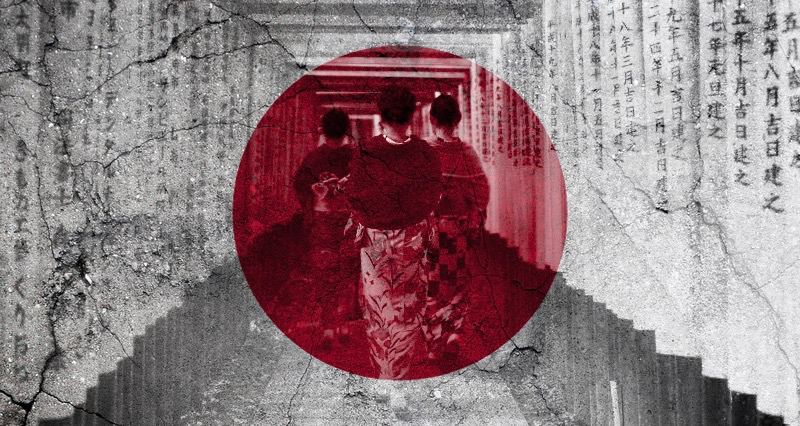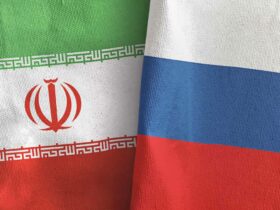By Kohei Mizugaki, civic activist
The recent visit to Yasukuni Shrine for worship by dozens of officers of the Ground Self-Defense Force, including the deputy chief of staff, has been criticized as being systematic and unconstitutional, violating the principle of separation of religion and state. The excuse that it was a private act cannot be accepted, since the official vehicles were used, and an implementation plan had been made. This issue is not simply a violation of the constitutional principle of separation of religion and state.
Yasukuni Shrine stands for the perspective of “holy war history”
When then Prime Minister KOIZUMI Jun’ichiro was criticized for his visit to Yasukuni Shrine in 2001, he said that there was no place in Japan where the Japanese prime minister could not go, and then he went on to say that there was no criticism of his visit to Ise Shrine, so why should he be criticized for visiting Yasukuni? While it is tempting to inquire about the first part of Koizumi’s statement, “Is the prime minister free to enter U.S. military bases in Japan as well?” The issue I want to comment on is related to the latter part of his statement.
The Prime Minister’s visit to Ise Shrine is also an unconstitutional act that violates the principle of separation of religion and state stipulated in Article 20* of the Constitution. However, as a matter of fact, the Prime Minister’s visits to Ise Shrine have not been criticized as much as his visits to Yasukuni Shrine in Japanese society. Of course, there has been no criticism from the Republic of Korea, China, or other countries. Criticism would be an interference in internal affairs. It is the visit to Yasukuni Shrine that China, ROK, and others criticize.
“Our Yasukuni Shrine” published by Yasukuni Shrine states: “…… It is sad to say that in order to protect Japan’s independence and the peace of Asia surrounding Japan, several battles with foreign countries took place. The “Sino-Japanese War” and the “Russo-Japanese War” in the Meiji era (1868-1912), the “First World War” in the Taisho era (1912-26), the “Manchurian Incident,” the “China Incident,” and the “Greater East Asia War (World War II)” in the Showa era (1926-89), occurred. War is a truly sad event, but it had to be fought in order to firmly defend Japan’s independence and to prosper as a peaceful nation along with the surrounding Asian countries.”
As symbolized by the enshrinement of Class-A war criminals, Yasukuni Shrine stands on the basis of the “holy war history” view that all wars in Japan’s modern and contemporary history were wars of justice. This is not a prewar story; it is a story as of 2024.
Yasukuni Shrine was established in 1879 as a separate government-run shrine, and in a very short period of time, it has become a superior shrine to other shrines and temples, including large, medium, and small government-run shrines, because Yasukuni Shrine was a war shrine under the jurisdiction of the Ministry of Land and Navy, and was founded on the fiction of monopoly over the souls of war dead, including those who died from disease during the wartime. It was established on the fiction of exclusivity. The first shrine designated as a separate government shrine was Minatogawa Shrine, which enshrined KUSU- NOKI Masashige (1294-1336), and Yasukuni Shrine was the second.
After WWII, Yasukuni Shrine became a religious corporation, but it has desperately tried to maintain the fiction of monopoly of the souls of the war dead. The shrine has ignored the wishes of the bereaved families of the war dead and enshrined them as “Heroic Souls of Defenders of Japan” without their permission, refusing to comply with any request from the bereaved families to withdraw the enshrinement. If they accept the request, the lifeline of Yasukuni Shrine, the monopoly of the souls of the war dead, would collapse.
What should be the problem?
The Self-Defense Forces are a “powerful organization” that is equipped with powerful lethal weapons and whose purpose is to annihilate rather than suppress the enemy, and is referred to in political science as an “organization of violence” (Max Weber). As such, it requires the strictest compliance with the Constitution and laws. Yasukuni Shrine claims that all modern wars in Japan were legitimate “holy wars,” a claim that cannot be accepted anywhere else in the world. Contrary to the official position of the successive domestic regimes, it rejects the postwar starting point, which was “never again shall we be visited with the horrors of war through the action of government” (preamble to the Constitution). The fact that the Self-Defense Forces executives systematically visited the Yasukuni Shrine should be considered as a problem.
*Article 20 of the Japanese Constitution: Freedom of religion is guaranteed to all. No religious organization shall receive any privileges from the State, nor exercise any political authority. No person shall be compelled to take part in any religious act, celebration, rite or practice. The State and its organs shall refrain from religious education or any other religious activity.
This article was first published by Shiso-Undo News in April 2024.

















Leave a Reply